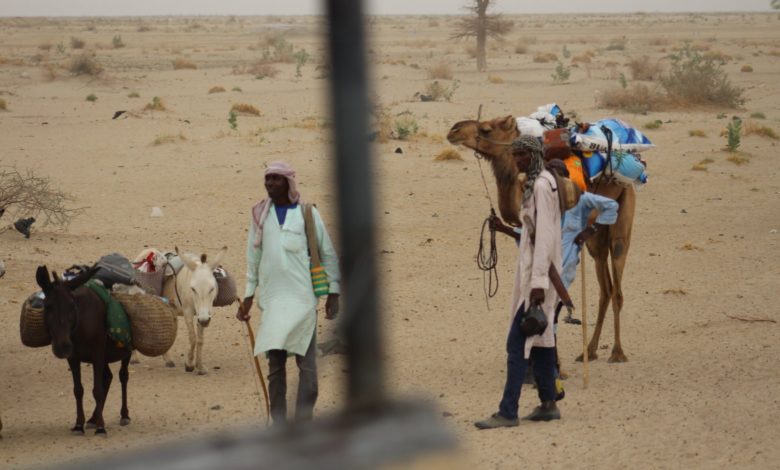UNSC Holds Debate On Climate Security, As Lake Chad Battles Climate Crisis

The United Nations Security Council (UNSC), an organisation of the United Nations responsible for maintenance of international peace and security, held a ministerial-level open debate on “climate and security” on Friday.
Germany, the current President of UNSC, co-sponsored the meeting with nine other Council members – Belgium, The Dominican Republic, Estonia, France, Niger, St. Vincent and the Grenadines, Tunisia, the United Kingdom, and Vietnam.
Germany’s Foreign Minister Heiko Maas chaired the meeting while a senior official from the United Nations Department of Political and Peace-building Affairs, Col. Mahamadou Magagi, of Niger, Director of the Centre National d’Études Stratégiques et de Sécurité, and Coral Pasisi of Niue, Director of the Sustainable Pacific Consultancy, also participated.
The debate was centred on UNSC efforts to address the security implications of climate change and how to respond appropriately to climate-related security risks.
Keiko Maas called on UN Secretary General Antonio Guterres to appoint a Special Representative of the Secretary-General on Climate and Security to ensure the issue was placed at the heart of UNSC’s work to maintain international peace & security in the 21st century.
Maas added that “Sooner rather than later, Climate Change will be a catalyst in almost every conflict we are dealing with.”
The UNSC has previously held four open debates on climate security risks in 2007, 2011, 2018, and 2019 and passed 12 resolutions since 2015, including resolution 2349 on the Lake Chad Basin Region, adopted by the Security Council at its 7911th meeting, on March 31, 2017
Climate change is regarded as a “threat multiplier,” in the Lake Chad and Sahel, where the United Nations said temperature increase was projected to be 1.5 times higher than the global average, with associated climatic shocks directly affecting millions of people in the Sahel.
Nasreen Al-Amin, a climate justice advocate in Nigeria and founder of Surge Africa, said It was essential that the UNSC addressed climate security threats as a key issue in their agenda to give hope for potential action to be taken.
“Climate security risks have been one of the major drivers of conflicts in the Lake Chad region which have resulted in one of the long-lasting humanitarian crises in West Africa..
“We are in a critical time where any measures of security and economic recovery efforts in the region must be tied to strengthening climate security and resilience,”. she said
In an independent analysis paper by Janani Vivekananda, Adam Day and Susanne Wolfmaier, tagged “what can the UNSC do on climate and security?’, the three experts stated that “growing recognition of the security impacts of climate change should be reflected in greater attention and action by the peace and security pillars of the United Nations, most importantly the UNSC”.
They added that “ the UNSC can address climate change as part of its general response to conflict situations, for example through inclusion in peacekeeping missions. Ongoing hostilities in Lake Chad, Mali, Somalia, Afghanistan, Libya, Yemen and Syria are all affected by climate change related weather events such as droughts, storms and extreme flooding, which (have) contributed to existing political and economic stresses and instability.”
Support Our Journalism
There are millions of ordinary people affected by conflict in Africa whose stories are missing in the mainstream media. HumAngle is determined to tell those challenging and under-reported stories, hoping that the people impacted by these conflicts will find the safety and security they deserve.
To ensure that we continue to provide public service coverage, we have a small favour to ask you. We want you to be part of our journalistic endeavour by contributing a token to us.
Your donation will further promote a robust, free, and independent media.
Donate HereStay Closer To The Stories That Matter




